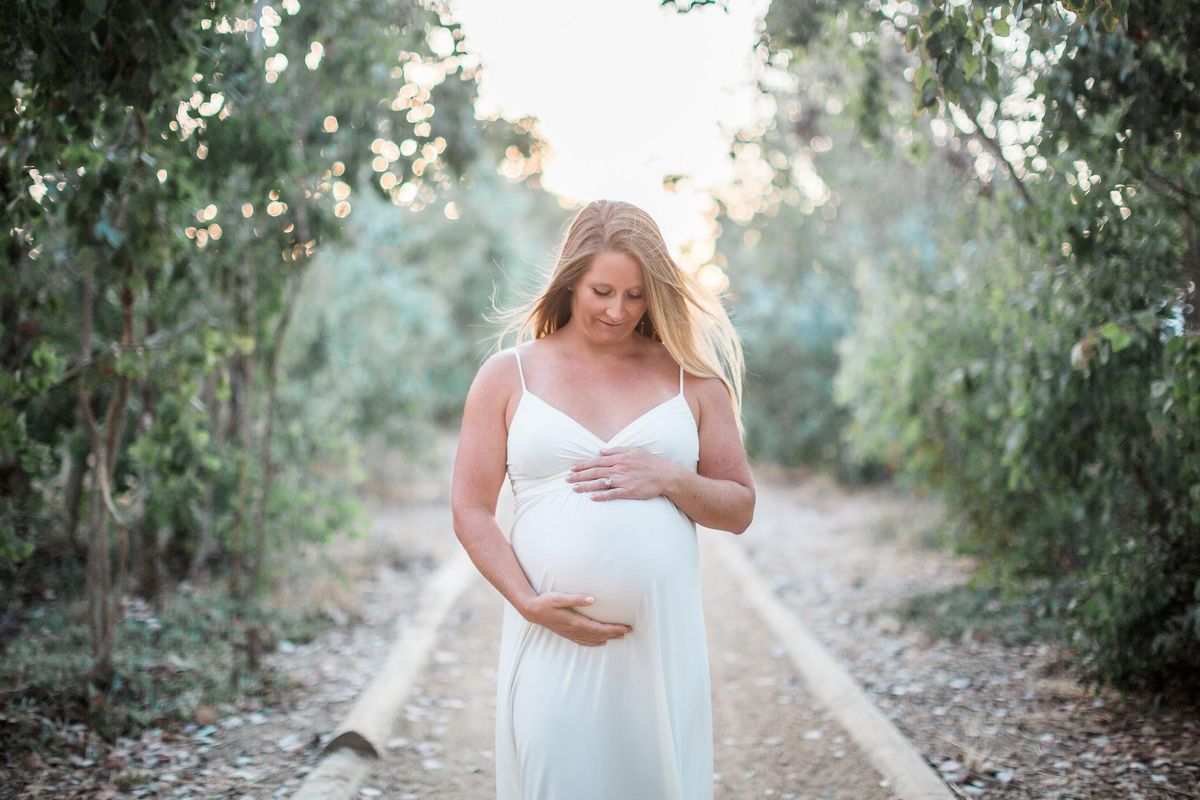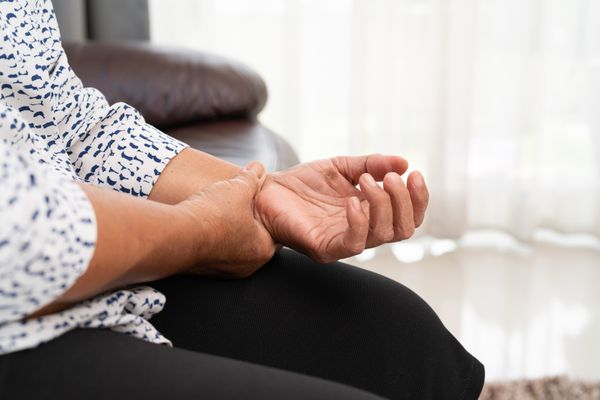As told to Alex Fulton
Like so many things in life, the birth of my first baby didn't go according to plan. I desperately wanted to deliver vaginally, but I wound up having to have a C-section because my baby had fluid in his lungs, and they needed to get him out quickly.
I'd known this could happen, of course, and had done my best to have an open mind about the possibility. And when even my most basic expectation — that I would leave the hospital with my baby — couldn't be met because he needed to spend some time in the neonatal intensive care unit (NICU), I forced myself to accept the reality of the situation. Nothing had gone the way I initially wanted it to, but I couldn't change any of it, and I was willing to do whatever was the safest option for my baby and me.
Prior to the birth of my baby, I didn't spend much time thinking about what a C-section would mean for my body if it happened. I wasn't ready for the pain — or the side effects of the opioid medications I was given for it. Even though I got through my emergency C-section, I wasn't prepared for the traumatic postpartum recovery I experienced.
Any woman who's had a C-section will tell you that even the smallest movements are painful afterward. Sitting on the edge of the bed or getting up to use the bathroom were bad enough, but because my son was in the NICU I had to walk down a long hallway every time I wanted to see him. Instead of lying down in bed to nurse him, I had to lean forward on a brand-new incision.
After I was discharged from the hospital and sent home without my baby, seeing him meant I had to spend 20 minutes in the car, walk through the hospital to get to the NICU, then sit in a chair for five hours every day. Not ideal conditions for recovery from major surgery! The pain was awful, and the opioid medication wasn't really helping.
I knew that opioids can cause pretty serious constipation, so I tried to be proactive about preventing it. But major surgery can slow down digestion, even in people who aren't taking opioids, and the combination of the C-section and the pain medication I was prescribed left me severely constipated. I was dealing with near-constant stomach pain due to constipation and after about a week, I couldn't stand it anymore — I decided to stop taking the opioids and switched to an over-the-counter pain reliever. Unfortunately, during my two-week post-op appointment, we learned that I had an underlying infection that surfaced, which further set me back.
The traumatic recovery from the infection following the birth of my first child shaped the birth plan for my second child. My new doctor and I decided on two things — that my second C-section would be scheduled to help reduce the risk of infection and that I wouldn't take opioid pain medication during my recovery since they weren't a good option for me. I was unwilling to risk constipation and other side effects, especially since I didn't find opioids to be particularly helpful for relieving my post-surgery pain the first time around.
After learning the pros and cons of different pain management techniques from my doctor, I chose an opioid-free pain control option. Unlike with the birth of my first baby, I was going to take charge of my post-surgery recovery plan. Ultimately, this led to a discussion about a long-lasting option to be included in my plan.
The difference between my first and second birth experiences was huge. My daughter was born via scheduled C-section in 2020, and I was able to stick to my plan and recover without opioids. My pain was well-controlled with a long-acting numbing medication, and I didn't struggle with constipation. I was able to move in bed, hold and nurse my baby, and walk to the bathroom alone. It was a completely different, much more positive experience than my first birth. I'm grateful that I was able to learn from the traumatic birth of my son, so I didn't have to go through that trauma again.
I hope others can learn from my experience. Even though opioids work well for some people, they aren't the best option for everyone, so it's important to weigh the risks and benefits of all your options and make an informed decision. If you're having a baby soon, I suggest talking with your doctor about a recovery plan in the event you need an emergency C-section. Even if you're hoping to deliver vaginally, it's better to have a conversation with your healthcare provider (HCP) about things like pain management and the available options ahead of time.
If you don't talk to your HCP about pain management options before you have your baby, decisions might be made for you. Depending on the standard practice of the hospital where you give birth, you could be given opioids after your C-section before you have a chance to ask questions about side effects or addiction risk. Not to mention that you'll be dealing with a new baby and a body that just went through major surgery. It's a lot to handle, and you may not have the brain space to weigh the pros and cons of different pain medication.
In my case, I didn't start paying attention to what I was taking for pain after my first C-section until it was too late, and I suffered as a result. I wish I'd known that I could choose not to use opioids when recovering from surgery. You may not be able to control everything about the birth of your baby, but you can decide how to support your own healing afterward.
This resource has been created with support from Pacira BioSciences, Inc.







